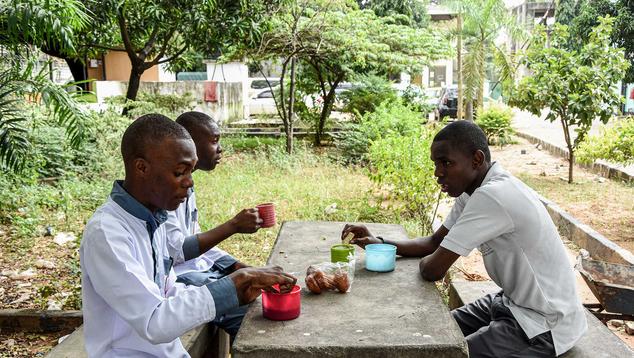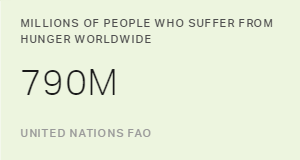WASHINGTON, D.C. -- New research shows a connection between food insecurity and diet quality, highlighting the relationships between hunger, malnutrition and the consumption of foods linked to the rise of non-communicable diseases.
Last year, the number of hungry people across the world increased, continuing its steady rise since 2014. According to the Food and Agriculture Organization of the United Nations, as a consequence of lack of money or other resources, approximately 2 billion people did not have access to safe and nutritious food.
Although the link between food insecurity and diet quality is intuitive, few studies demonstrate the effect that food insecurity has on diet quality, and how it manifests itself across different countries and regions.
To fill this data gap, Gallup helped develop a new global diet quality metric -- the Diet Quality Questionnaire (DQ-Q) -- which it tested in Ghana and Tanzania in 2019. Fielded along with the Food Insecurity Experience Scale (FIES) questions, the results highlight the critical link between food security and reduced diet quality.
Preliminary analysis of these two studies, detailed in the latest State of Food Security and Nutrition in the World (SOFI) report, shows that in both countries, people who were food insecure (based on their answers on the FIES) reported consuming less diverse diets and fewer nutritious foods that contribute to healthy diets. Further, people's diet quality worsened as the severity of their food insecurity increased -- which means they had to compromise on both the quality and the quantity of the food they were eating.
The SOFI report also highlighted another important finding: In Tanzania, women were more likely than men to eat less diverse diets, fewer nutritious foods and energy-dense foods. This finding was particularly notable given that food insecurity is higher globally among women than men, with the gender gap in accessing food increasing globally from 2018 to 2019.
Bottom Line
For the sixth consecutive year, Gallup's World Poll research has underpinned a key metric in the SOFI report: the number of food-insecure people worldwide. Gallup's work shines a light on the 2 billion people globally who suffer from food insecurity. Of those 2 billion, 746 million suffer from severe food insecurity -- they are forced to skip meals or go without food for an entire day because they lack money or other resources.
But this year, the report also highlights the links between food insecurity and poor diets -- debuting Gallup's ground-breaking work on global diet quality. As the world remains shaken by the pandemic and economic turmoil, tracking and combating global food insecurity -- and monitoring diet quality to support good health -- are more necessary than ever.
Note: Policymakers, international organizations, academic institutions and the general public are able to access the FIES microdata from all countries in which the U.N.'s Food and Agriculture Organization (FAO) has collected data through the Gallup World Poll and for which national statistical authorities have consented to their use. The data can be downloaded here.




